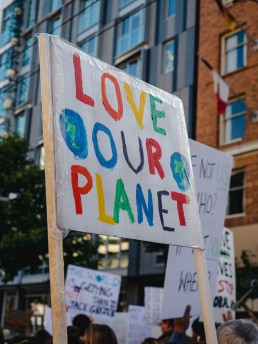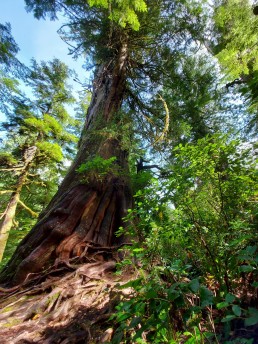Science Diplomacy Series: UK, Canada and Emerging Technology
Science Diplomacy Video Series
UK, Canada & Emerging Technology
Our #ScienceDiplomacy video series explores how scientific researchers and academics from the UK and Canada are collaborating to address some of the world’s biggest challenges.
Emerging technologies in various scientific and technical disciplines are being developed at incredible speed around the world. These technologies have the potential to solve some of the world’s biggest challenges. In the UK, advanced computing capabilities are becoming essential to biology, chemistry, physics, and nearly every other area of research by helping to model the effects of climate change, power the discovery of new drugs and model future pandemics.
When it comes to the advancement of emerging technologies, science diplomacy plays a vital role. International collaboration between countries like the UK and Canada continues to enhance scientific knowledge and capabilities worldwide. It also helps to ensure that technology is being used as a force for digital good, brings together leading experts to turbocharge development, and considers the policy challenges such technology can bring like privacy and protecting research from others who may wish to obtain them.
In the final video of our #ScienceDiplomacy series you will hear from:
- Dr. Joel Martin: National Research Council of Canada’s Chief Digital Research Officer and Chief Science Officer
- Iain Stewart: President of the National Research Council of Canada
- Professor Carole Mundell: President of the Science Council & Professor of Extragalactic Astronomy at the University of Bath
The three experts discuss the importance of UK and Canada collaboration in areas like artificial intelligence and quantum computing.
DID YOU KNOW?
→ The UK-Canada have the first industry led partnership between any two countries to develop quantum technologies, with research expected to impact significantly on healthcare, secure communications, defence, computing and financial services.
→ In 2017, the UK and Canada pledged to work together to develop emerging technologies, signing an ambitious science and innovation agreement covering multiple sectors valid for a period of ten years.
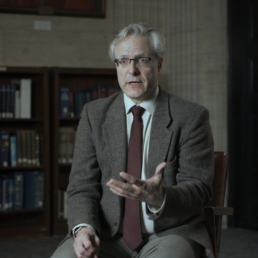
Dr. Joel Martin
Dr. Joel Martin is the NRC’s Chief Digital Research Officer and Chief Science Officer. He holds a Ph.D. in Computer Science, Machine Learning, from the Georgia Institute of Technology and completed post‑doctoral studies at the University of Pittsburgh. Dr. Martin has received awards for exceptional leadership and for innovative approaches to technology transfer. He has published dozens of peer-reviewed research articles and taught Computer Science courses at both the University of Ottawa and Carleton University.
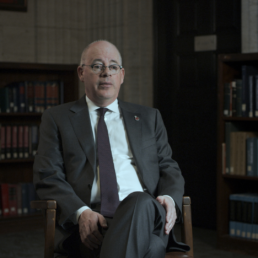
Iain Stewart
In August 2016, Iain Stewart was appointed the 12th President of the National Research Council of Canada. His current term extends to September 2025. Prior to joining the NRC, Mr. Stewart was Associate Secretary of the Treasury Board Secretariat, and Assistant Deputy Minister, Policy, at the Department of Innovation, Science and Economic Development (ISED). At ISED, the Atlantic Canada Opportunities Agency, and as Assistant Vice‑President of Research at Dalhousie University, Mr. Stewart has held a range of executive positions focused on supporting business innovation and university research.
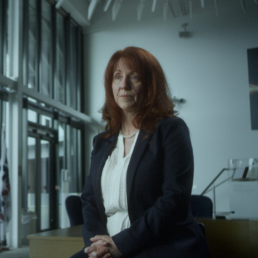
Professor Carole Mundell
Professor Carole Mundell was the Chief International Science Envoy at the Foreign, Commonwealth & Development Office from January to October 2021. Previously Professor Mundell was Chief Scientific Adviser at the Foreign & Commonwealth Office. She is Professor of Extragalactic Astronomy at the University of Bath where she holds the Hiroko Sherwin Chair in Extragalactic Astronomy, and a Fellow of the Institute of Physics and President of the Science Council.
Science Diplomacy Series: UK, Canada and Global Health
Science Diplomacy Video Series
UK, Canada & Global Health
Our #ScienceDiplomacy video series explores how scientific researchers and academics from the UK and Canada are collaborating to address some of the world’s biggest challenges.
The COVID-19 pandemic presented new and growing challenges that underscored the importance of international collaboration.
Scientific experts from the UK and Canada have been engaging in science diplomacy to better understand and respond to COVID-19. Keeping each other informed about the evolving virus by sharing scientific data and updates.
In this video you will hear from:
- Professor Sharon Peacock: Microbiologist and Professor of Public Health and Microbiology the University of Cambridge
- Dr. Mona Nemer: Canada’s Chief Science Advisor
- Professor Carole Mundell: President of the Science Council & Professor of Extragalactic Astronomy at the University of Bath
The three experts share why scientific collaboration between our two countries and the international community is crucial in responding to global health threats like the pandemic.
DID YOU KNOW?
→ UK-Canada joint work on AI analysis of genomics datasets prior to the pandemic ensured we were able to rapidly step-up expert level collaboration on variants of concern when COVID struck.
→ Partnerships such as the Canadian COVID Genomics Network and the COVID-19 Genomics UK Consortium have been crucial in inform understanding of the virus.
→ Researchers from Simon Fraser University and LSE worked together with other countries to study the impact of COVID-19 on women’s health, social and economic welfare.
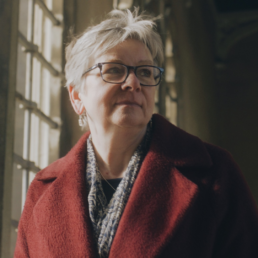
Sharon Peacock, CBE FMedSci MRCP
Sharon Jayne Peacock CBE FMedSci MRCP is a British microbiologist who is Professor of Public Health and Microbiology in the Department of Medicine at the University of Cambridge. She is known for her work on the use of microbial whole genome sequencing in diagnostic and public health microbiology, particularly on the bacterium Burkholderia pseudomallei and on methicillin-resistant Staphylococcus aureus (MRSA).
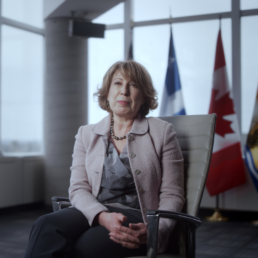
Dr. Mona Nemer, C.M., C.Q., FRSC
Before becoming the Chief Science Advisor, Dr. Nemer was Professor and Vice-President of Research at the University of Ottawa and Director of the school’s Molecular Genetics and Cardiac Regeneration Laboratory. She holds a PhD in Chemistry from McGill University and did post-doctoral training in molecular biology at the Institut de Recherche Clinique de Montréal and Columbia University.

Professor Carole Mundell
Professor Carole Mundell was the Chief International Science Envoy at the Foreign, Commonwealth & Development Office from January to October 2021. Previously Professor Mundell was Chief Scientific Adviser at the Foreign & Commonwealth Office. She is Professor of Extragalactic Astronomy at the University of Bath where she holds the Hiroko Sherwin Chair in Extragalactic Astronomy, and a Fellow of the Institute of Physics and President of the Science Council.
Science Diplomacy Series: UK-Canada Climate Action
UK-Canada Climate Change Collaboration
Science Diplomacy in Action ⬇
What is Science Diplomacy?— From Climate Change to Global Pandemics, Energy Supply Chains to Quantum Technology the world is facing unprecedented changes on a scale never before seen in history. Science lies at the heart of this change, whether it be overcoming threats to our global population or unlocking opportunities to advance technology and boost economic growth. The UK and Canada are at the forefront. Our researchers and academics have led the way collaborating on vaccine research, hydrogen fuel standards and much more. Together we are stronger. Our shared research leads to a better world for us all. This is science diplomacy.
In this 3-part video series, we explore how the UK and Canada are working together in areas like climate change, global health, and tech & AI.
Below Professor Carole Mundell (Extragalactic Astronomy at the University of Bath) and Dr. Mona Nemer (Canada’s Chief Science Advisor) share how the UK and Canada are tackling one of the biggest threats to our generation– climate change.
DID YOU KNOW?
→ The UK and Canada have a history of working closely to tackle climate change and this accelerated in the lead up to COP26, hosted by the UK.
→ Our two countries have a strong foundation of international collaboration on climate change, with the establishment of the Powering Past Coal Alliance in 2017. This alliance now has 96 national and sub-national governments working to phase out coal and support clean power, a key objective of the COP26 climate conference.
→ The UK and Canada are also working to accelerate zero emission vehicle uptake and technologies, supporting developing countries with climate adaptation finance and have committed to halt and reverse deforestation by 2030.
→ There is a unique £8m partnership between the UK and Canadian Governments together with the ITK (Inuit Tapiriit Kanatami), and the Government of Québec to study impacts of changing climate in coastal and near-shore marine environments in Inuit Nunangat.

Dr. Mona Nemer, C.M., C.Q., FRSC
Before becoming the Chief Science Advisor, Dr. Nemer was Professor and Vice-President of Research at the University of Ottawa and Director of the school’s Molecular Genetics and Cardiac Regeneration Laboratory. She holds a PhD in Chemistry from McGill University and did post-doctoral training in molecular biology at the Institut de Recherche Clinique de Montréal and Columbia University.

Professor Carole Mundell
Professor Carole Mundell was the Chief International Science Envoy at the Foreign, Commonwealth & Development Office from January to October 2021. Previously Professor Mundell was Chief Scientific Adviser at the Foreign & Commonwealth Office. She is Professor of Extragalactic Astronomy at the University of Bath where she holds the Hiroko Sherwin Chair in Extragalactic Astronomy, and a Fellow of the Institute of Physics.
Canada's World-Renowned Environmentalist
Canada's World-Renowned Environmentalist
A world-renowned environmental leader and one of Canada’s most celebrated scientists, David Suzuki has been at the forefront of the environmental movement for over four decades.
During this time he has taken on many roles, from geneticist, broadcaster, author, and host of CBC’s The Nature of Things, to co-founder of the David Suzuki Foundation, a non-profit organisation that promotes solutions to environmental problems. He is widely recognised as a world leader in sustainable ecology and has received numerous awards for his work, including a UNESCO prize for science and a United Nations Environment Program medal. He is also a Companion of the Order of Canada.
In our new podcast Three Questions & A Cuppa Tea, we sat down with David to discuss his work as a leader in climate action, the rich tapestry of his experience over the decades, and why it’s so urgent to address climate change. Have a listen:
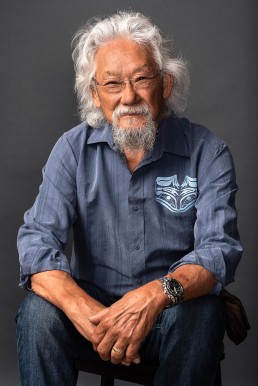
City of Victoria Joins Race to Zero
Racing To Zero, Together: City of Victoria Joins The Race
British Consul-General Nicole Davison sits down with City of Victoria Mayor Lisa Helps to learn about the city’s pledge earlier this year to join Race To Zero and how it will help to build a net zero future.
4 November 2021—The UN Climate Change Conference COP26 is now underway in Glasgow, bringing the world together to tackle the biggest issue of our time – climate change. This is the world’s last, best chance to reach agreement on the action needed to avert catastrophic climate change and honour the goals of the Paris Agreement to keep a 1.5-degree limit on temperature rises within reach.
In the lead up to this critical summit, the British High Commission and consulates have been working with Canadian partners, organisations, and communities to drive climate action forward.
A critical component in delivering impactful climate action is rallying companies, cities, regions, financial, educational and healthcare institutions across the world to join the UN-backed Race To Zero Campaign which aims to halve global emissions by 2030 and reach net zero by 2050.
This summer, the City of Victoria joined Race To Zero, alongside more than 130 other Canadian non-state actors who are driving the path forward to a cleaner, greener, more sustainable future. The City of Victoria has committed to taking climate action and addressing the Climate Emergency by reducing greenhouse emissions by 80% and transitioning to 100% renewable energy by 2050.
To find out more about the City of Victoria’s commitments, British Consul-General in Vancouver, Nicole Davison, sat down with Mayor Lisa Helps to discuss the city’s pledge to Race To Zero:
About Race to Zero
Race To Zero is a global campaign to rally leadership and support from businesses, cities, regions, and investors for a healthy, resilient, zero carbon recovery that prevents future threats, creates decent jobs, and unlocks inclusive, sustainable growth.
It mobilizes a coalition of leading net zero initiatives, representing 733 cities, 31 regions, 3,067 businesses, 173 of the biggest investors, and 622 Higher Education Institutions. These ‘real economy’ actors join 120 countries in the largest ever alliance committed to achieving net zero carbon emissions by 2050 at the latest. Collectively these actors now cover nearly 25% global CO2 emissions and over 50% GDP.
The objective is to build momentum around the shift to a decarbonized economy ahead of COP26, where governments must strengthen their contributions to the Paris Agreement. This will send governments a resounding signal that business, cities, regions and investors are united in meeting the Paris goals and creating a more inclusive and resilient economy. racetozero.unfccc.int/join-the-race/
About COP26
The UK will host the 26th UN Climate Change Conference of the Parties (COP26) in Glasgow on 1 – 12 November, 2021. The COP26 summit will bring parties together to accelerate action towards the goals of the Paris Agreement and the UN Framework Convention on Climate Change. The UK is committed to working with all countries and joining forces with civil society, companies and people on the frontline of climate change to inspire climate action ahead of COP26. To learn more visit ukcop26.org/
Simon Fraser University Joins Race to Zero
Simon Fraser University Joins Race to Zero
Committing to Net Zero Ahead of COP26: The British Consulate-General welcomes Simon Fraser University to the Race to Zero Campaign.
19 October 2021, Vancouver – Today the British Consulate-General is pleased to welcome Simon Fraser University’s (SFU) pledge to join Race to Zero, the United Nations-backed global campaign rallying for rigorous and immediate climate action to halve global emissions by 2030.
In two weeks, the UK will host COP26, the UN Climate Change Conference, in Glasgow. This will be a pivotal moment for the world to come together to take meaningful action to avoid irreversible climate change.
Ahead of this critical summit, the British High Commission and consulates have been working collaboratively with Canadian partners, organisations, and communities in the fight against climate change and the drive for a net zero future. Today’s announcement sees SFU join 130 other non-state Canadian actors who are spearheading the path to a cleaner future by joining Race to Zero.
Joy Johnson, President and Vice-Chancellor, Simon Fraser University:
“We are at a critical time where we need to come together—on a global scale—to inspire climate action and make a positive impact. As leaders in sustainability, SFU will continue to take action to address climate change and promote efforts to build healthier, safer and more resilient communities. Joining the UN’s Race To Zero campaign is another positive step forward in furthering our commitment.”
Nicole Davison, British Consul-General in Vancouver:
“Climate change is not a distant threat but happening now, and urgent action is needed to address it. The Race to Zero campaign is a critical part of this climate action and we are delighted to be welcoming Simon Fraser University to the race to build a cleaner, net-zero future. In the lead up to COP26, the UN Climate Change Conference hosted by the UK in Glasgow, we have been working with our Canadian partners to drive climate action forward. With now only two weeks to go until this critical summit, there is no time to waste.”
The Race to Zero campaign is a global initiative to elevate ambition and mobilize credible climate action among cities, regions, businesses and investors to deliver a sustainable net zero transition. Through credible and science based climate targets these actors are working to keep global temperature rise to within 1.5C warming by 2050, which is in line with the Paris Agreement.
SFU’s commitment to Race to Zero is part of the university’s wider sustainability initiative to help protect the planet and ensure a cleaner future for all. Through its efforts, SFU provides a great example of a leading British Columbia institution putting green initiatives at the forefront. To find out more about these initiatives and to welcome SFU’s net zero commitment, British Consul-General Nicole Davison sat down with SFU President and Vice-Chancellor Joy Johnson to discuss what these changes will mean to students, faculty and staff. Watch the interview below.
Tackling climate change requires a global effort and the UK is pleased to be working alongside Canadian partners in our shared commitment and dedication to addressing this existential threat and holding the global temperature increase to 1.5 degrees.
About SFU’s commitment to sustainability and joining Race to Zero
- SFU has set ambitious emission reduction targets for Race To Zero that will see 85 per cent GHG emissions reductions by 2030, net zero reductions of direct emissions by 2035, and net zero of all emissions by 2050.
- In 2020, SFU committed to a five-year sustainability plan (SFU 2025) to acknowledge the climate crisis and mobilize the entire institution to embed climate action throughout its operations, research, academics, and community and global engagement. This includes more aggressive climate action targets, after reaching operational emission reduction targets (reduction of 50 per cent) ahead of schedule.
- Along with SFU joining Race To Zero, the university has launched a Sustainable Development Goals website to share how the institution has—and is—advancing in these areas.
- In the coming months and throughout the next year, more will be shared about SFU’s sustainability initiatives currently underway, as well as the university’s progress towards the Race To Zero targets.
Learn more at www.sfu.ca/sustainable-development-goals
About Race to Zero
Race To Zero is a global campaign to rally leadership and support from businesses, cities, regions, and investors for a healthy, resilient, zero carbon recovery that prevents future threats, creates decent jobs, and unlocks inclusive, sustainable growth.
It mobilizes a coalition of leading net zero initiatives, representing 733 cities, 31 regions, 3,067 businesses, 173 of the biggest investors, and 622 Higher Education Institutions. These ‘real economy’ actors join 120 countries in the largest ever alliance committed to achieving net zero carbon emissions by 2050 at the latest. Collectively these actors now cover nearly 25% global CO2 emissions and over 50% GDP.
The objective is to build momentum around the shift to a decarbonized economy ahead of COP26, where governments must strengthen their contributions to the Paris Agreement. This will send governments a resounding signal that business, cities, regions and investors are united in meeting the Paris goals and creating a more inclusive and resilient economy. racetozero.unfccc.int/join-the-race/ unfccc.int/climate-action/race-to-zero-campaign
About COP26
The UK will host the 26th UN Climate Change Conference of the Parties (COP26) in Glasgow on 1 – 12 November, 2021. The COP26 summit will bring parties together to accelerate action towards the goals of the Paris Agreement and the UN Framework Convention on Climate Change. The UK is committed to working with all countries and joining forces with civil society, companies and people on the frontline of climate change to inspire climate action ahead of COP26. To learn more visit ukcop26.org/
About the British High Commission Ottawa
The British High Commission in Ottawa, is the UK government’s main diplomatic mission in Canada. Along with Consulates-General in Montreal, Toronto, Calgary and Vancouver, we work closely with the Canadian government and partners across the country to develop and maintain a wide range of substantive partnerships of real value to both countries. These partnerships cover business, defense, climate change, science and innovation, education, and culture.
About Simon Fraser University
As Canada’s engaged university, SFU works with communities, organizations and partners to create, share and embrace knowledge that improves life and generates real change. We deliver a world-class education with lifelong value that shapes changemakers, visionaries and problem-solvers. We connect research and innovation to entrepreneurship and industry to deliver sustainable, relevant solutions to today’s problems. With campuses in British Columbia’s three largest cities—Vancouver, Burnaby and Surrey—SFU has eight faculties that deliver 193 undergraduate degree programs and 127 graduate degree programs to more than 35,000 students. The university now boasts more than 160,000 alumni residing in 143 countries.
British Consulate-General Media Contact
Claire Wallace
Media & Public Affairs Officer, British Consulate-General, Vancouver
claire.wallace@fcdo.gov.uk
SFU Media Contact
Marianne Meadahl
Assistant Director, Media Relations and Public Affairs, Simon Fraser University
marianne_meadahl@sfu.ca
Watch the Full Interview

